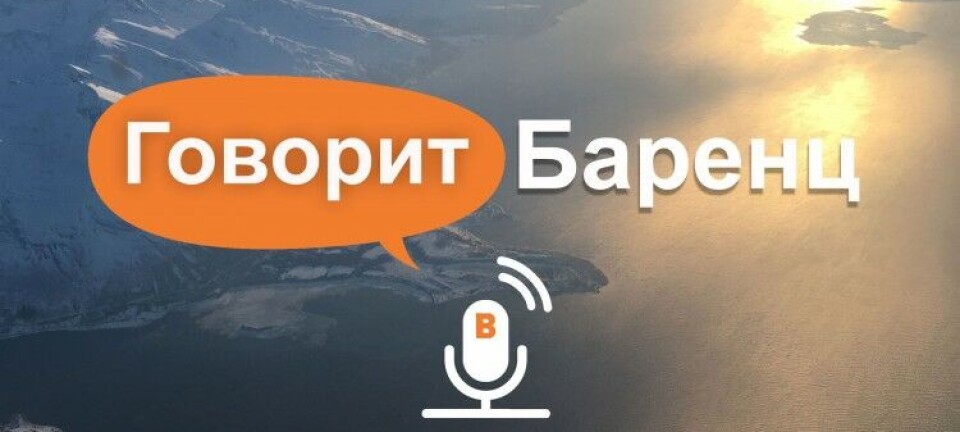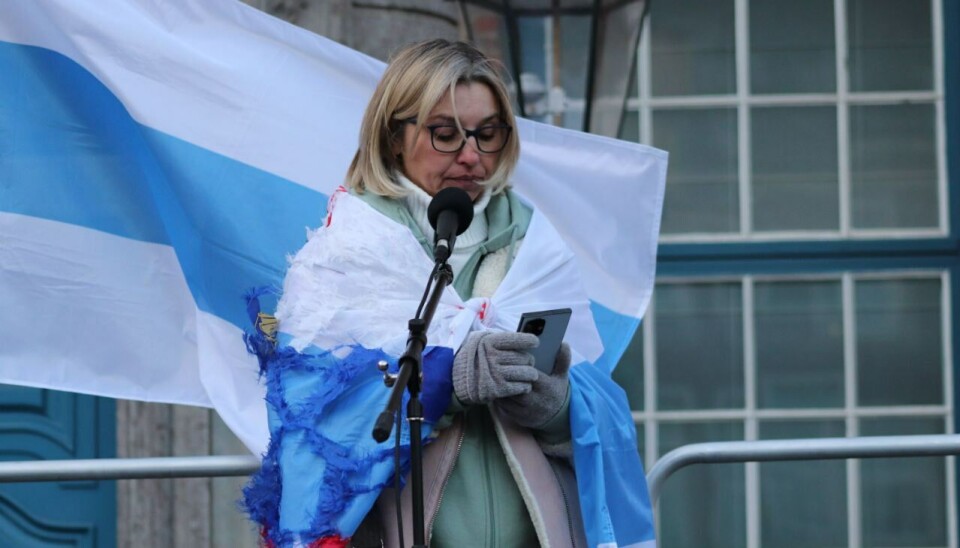
Anti-war activist Anna hung up Ukrainian flags and started to wear blue and yellow clothes. She had to flee from her north Russian village
Anna Stepanova knows well what it means to lose friends, face harassment and threats from neighbours, and be forced into exile. She still loves her village of Savinsky in Arkhangelsk region, but hates the Russian state, which she says deprives both its own population and neighbouring countries of a future.
Anna is an activist from the Arkhangelsk region. Her journey began with the fight to preserve the maternity hospital and clinic in her native Savinsky and ended with forced emigration. After the start of the full-scale invasion of Ukraine, she openly opposed the war, for which she received fines and administrative cases. In September this year, the Ministry of Justice declared Anna a 'foreign agent'. Her ex-husband, the father of her two children, is currently fighting in Ukraine. Her cousin also signed a military contract. Anna now lives in Germany, where she continues to work against the regime and the war.
Anna Stepanova's story. Told by herself
I was born in the Arkhangelsk region, Plesetsk district, thirty kilometres from the Plesetsk Cosmodrome. Already early under Putin's regime, I began to notice that people were leaving the village: kindergartens and schools were closing, and in their place appeared shops with alcoholic drinks and pharmacies. The cemetery is growing, and the birth rate remains extremely low.
It was then that I began my activism — in my native village, which I love very much. This is the village of Savinsky. When I saw that our hospitals were closing and the maternity hospital was about to stop working, I decided to organise people. We began to hold the first rallies, sign documents, and meet in our House of Culture to discuss the future of the village. I thought that this concerned absolutely everyone.
At that moment, I was just about to consider a third child. I had two children from my first husband — we divorced, and now he, by the way, is a 'svochnik'. Then I met my second husband, with whom I still live to this day. I planned to have a child with him, as he didn't have any of his own. But just at that time, the maternity hospital was closing. And he said: "Anya, we already have a son and a daughter, and I'm not ready to risk your health for another child."
So I started dealing with the internal problems of the village. Over time, it became clear that this was not just our local trouble. Similar things were happening all over Russia. At that time, there was a trend: people were no longer leaving the villages en masse, but the settlements were rapidly emptying — people were moving to larger cities.
Well, I tried to fix something and help, but after several years of activities within my village, I realised: most people live the life they have and do not try to change anything, just go with the flow.
In early 2019, I arrived at Shies and held the first women's watch — that's how my eco-activism began. There, I met a huge number of wonderful people. It seemed to me that these were exactly the people I could be with even in the most serious and difficult situations. They were all on the same wavelength, and it was amazing. People of different religions, with different world views, united in one place. I think it was the only truly large, protracted, and at the same time peaceful protest.
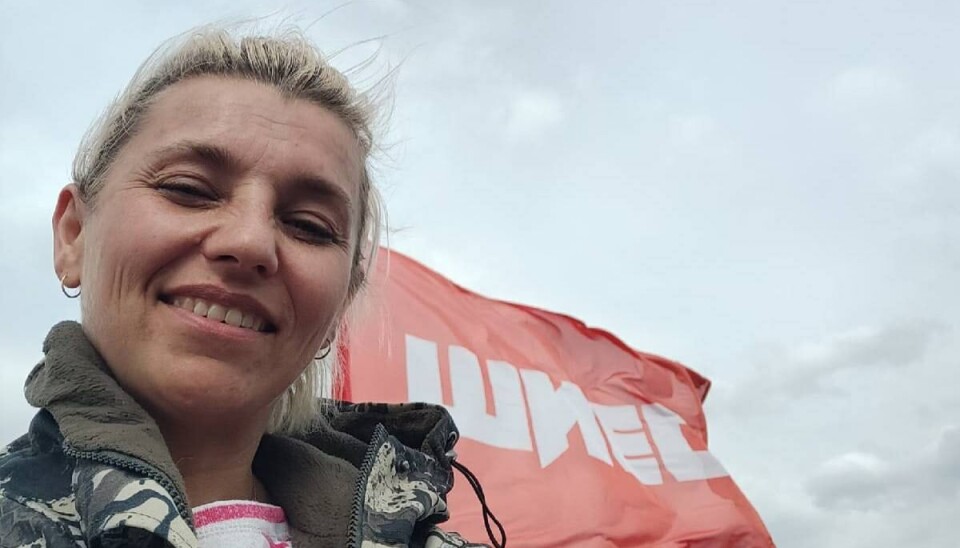
But then the full-scale invasion of Ukraine began, and I was extremely surprised: those people who previously opposed the Putin regime suddenly began to support it. They said: "First we will deal with the Ukrainians, and then we will deal with Putin."
And it turned out that the people with whom I sat in the same tent and defended Shies signed contracts with the Ministry of Defence. Some of them went to 'defend our lands' in Ukraine at the very beginning of the full-scale invasion. Some of them are no longer alive. For me, this was probably the most serious disappointment of my life.
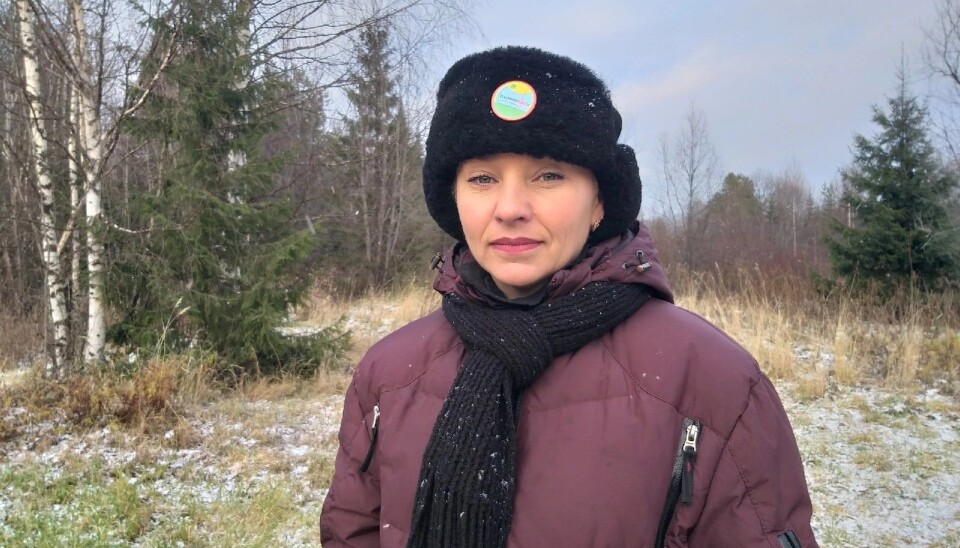
Many of the people who had defended their homes and the mushrooms in their forests began to say: "Well, it's far from my front door. So it doesn't really concern me. They will not come to my forest to pick my mushrooms."
When the full-scale war began, I started hanging Ukrainian flags, wearing blue and yellow clothes. I started recording videos in support of Ukrainians.
When the full-scale war began, I started hanging Ukrainian flags, wearing blue and yellow clothes.
In connection with this, I saw a huge response from those who were once part of the environmental protest. They immediately said that I was paid by the American State Department, that I was 'in it for the money', that everyone who is now against Putin is paid. Most of the activists who were for Shies went to the other side of the barricades and began to consider themselves 'patriots.'
I really like Shevchuk's expression: 'The motherland is not the president's arse'. And to see oneself as a person who 'defends one's borders' outside one's state is very strange. It's strange to look for Nazism when you are a Nazi yourself.
Then they started fining me under administrative anti-war articles. When this happened, those who I seemed to be in the same trench with started to hate me: my classmates, friends who gave birth to children at the same time as I. Their husbands took up arms, stuck the letter Z on their cars, and walked around the village drunk with tricolours.
They wrote to me directly in our local groups that they would tie me to two cars and tear me apart right near my house, in the square next to the House of Culture — the same House of Culture where we once together defended the maternity ward of our village.
People started calling me a 'Ukrainian wh*re'. They remembered that my dad was Ukrainian, although he died in the 2016 and is buried in Ukraine. Yes, indeed, my father is Ukrainian, but I was born in Russia and consider myself Russian.
I saw how my neighbours rejoiced at the arrivals in Ukraine, saying that Nazis should be wiped off the face of the earth, that they should be killed from infancy so that 'Nazism in Ukraine does not grow'. And I could not understand how it had come to this.
Missiles fly from us to the territory of another state, and my neighbours clap their hands and rejoice that 'we are killing Nazis', not realising that we are the very Nazis who are now killing people based on nationality in another country.
During this period, I had a terrible crisis. I realised that we would not be able to defend our positions because most of the people around me support Putin and this criminal war. There were only a few of us. But I still couldn't keep silent — I don't know how to keep silent. And this led to cases of 'discrediting the army.'
I still couldn't keep silent — I don't know how to keep silent.
It so happened that at that time a film was to be made about me and my family as environmental activists. It was Ostwest — a Russian-language German television company. It turned out that the filming process coincided with the time when cases were being brought against me. The film crew had to help me leave the country.
The guys raised money, we repaired the car. First, I was taken to St. Petersburg, then to Moscow — to meet a very famous person at that time who represented the interests of anti-war activists.
The human rights activist told me that I could not return to Savinsky, I needed to leave urgently. Imagine the situation: I just went to meet a lawyer, we were filming a movie, and suddenly they tell me: "You are not going home anymore. Call your husband and tell the children that they are going on holiday. But it's a one-way ticket."
For me, it was a real nightmare. I didn't understand what was happening, and the worst part was that I couldn't say goodbye to my parents, my mum, my grandmother, or anyone. Firstly, they supported Putin, and even if I had returned and told the truth, there was a high chance that my relatives would have turned me in to the FSB. They told me, "Go to prison in Russia, at least they have gas there and you will be warm."
They had absorbed the propaganda that Europe is freezing and only Russia has gas, that all other countries envy us, want to use us, and then abandon us. And when I went to my mum with tears in my eyes and said, "Mum, they're killing our relatives," she replied, "Anya, don't worry, they never loved us anyway."
We left absolutely everything that remained in Russia, without packing suitcases, without folding clothes, just throwing some things into bags. At first, we didn't even know where we were going. In the end, we were taken to Georgia.
And then came that moment — when you completely lose connection. You leave the country and realise that it's like it's surrounded by barbed wire.
Arriving in Tbilisi, I started going to protest rallies, shouting out loud, 'Putin is a d*ckhead.' And, damn, I felt such freedom! I realised that I was in a free country, that I had left a prison. I was the happiest person.
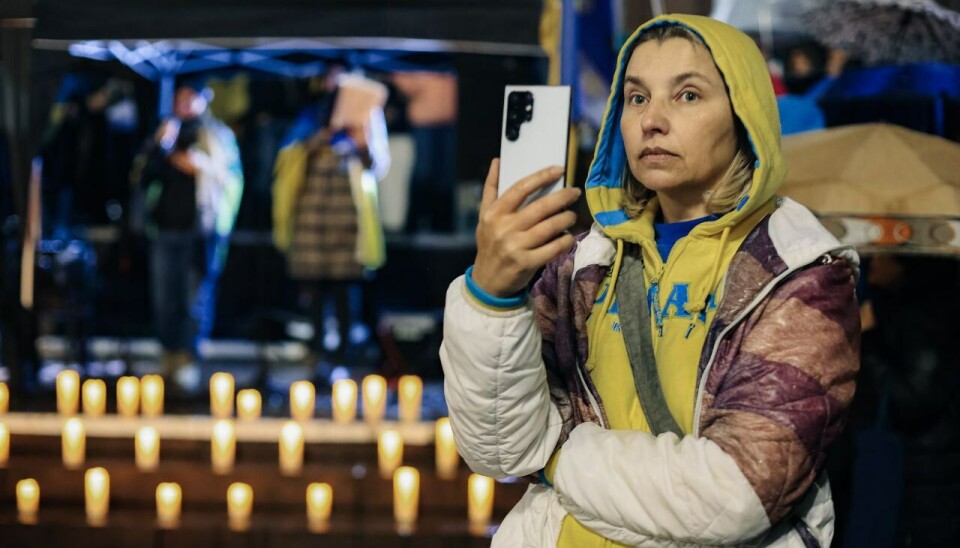
Damn, I felt such freedom! I realised that I was in a free country, that I had left a prison. I was the happiest person.
At first, we lived in a shelter. Then I pulled myself together and realised that it was impossible to live like that all the time. I am an adult, in my forties, and I needed to look for other options. It was then that I started a project - I had realised how difficult it was to find accommodation for people with pets. Many people refused to accommodate tenants who have with them either children or animals. I started a project and received help to implement it. I opened a shelter where I invited everyone who had left Russia with their animals.
The shelter existed for six months. There is a film called 'The Mistress of the Shelter', which was filmed by 'Aktivatika'. It was an amazing time: Ukrainians and Belarusians came to me. Then mobilisation began in Russia, and people also started coming with their animals. It was an incredible time. I saw those people to whom I provided the opportunity to live for several months for free in the shelter with their animals while they looked for work and housing that would accept them with their pets.
I decided to look for work: I found a place, met people who had shops in Tbilisi selling dog and cat food. They were ready to provide a space and renovate it. I would work for them as a groomer for a percentage — it would be my business.
I wasn't planning to moving to Europe. But at some point, an LGBT family from Russia moved into the shelter with me — two women with a child. They received a humanitarian visa to Germany. They said, "Anya, maybe you should try to apply for documents too?" These were girls with a child from Russia.
Before the New Year, my family and I received approval for a humanitarian visa, although, to be honest, we didn't even hope for it. But at that moment it was clear that in Georgia there was a pro-Russian government and the ruling party "Georgian Dream." And it was clear that if we stayed there, we could be sent back to Russia.
We packed our bags and closed the shelter. This place continued to operate for another month after we left — it was paid for by the guys, and we stayed in touch. And then my family and I moved to Germany on a humanitarian visa.
And yet I am very grateful to the Georgians — I fell madly in love with this nation. I still have friends there. Locals showed me Georgia, took me around, and told me what our country did in 2008, how we waged war on their territory. They explained to me what Sakartvelo is, how they defended their country from Russian attacks. At that moment, a completely different history of my state opened up to me. I realised that for hundreds of years we have been destroying everyone and everything around us, while telling ourselves that we are an amazing super-nation, a great superpower. But in reality, we are a puff that represents absolutely nothing, except for vast territories overgrown with hogweed.
I realised that for hundreds of years we have been destroying everyone and everything around us, while telling ourselves that we are an amazing super-nation, a great superpower.
Once, I too was a 'staunch Russian'. I had never travelled outside of Russia. I had only been to Moscow a few times — and that was thanks to Shies. I lived in this godforsaken place, in the Arkhangelsk region, and thought I was living in the best nation, that I was the best superhuman.
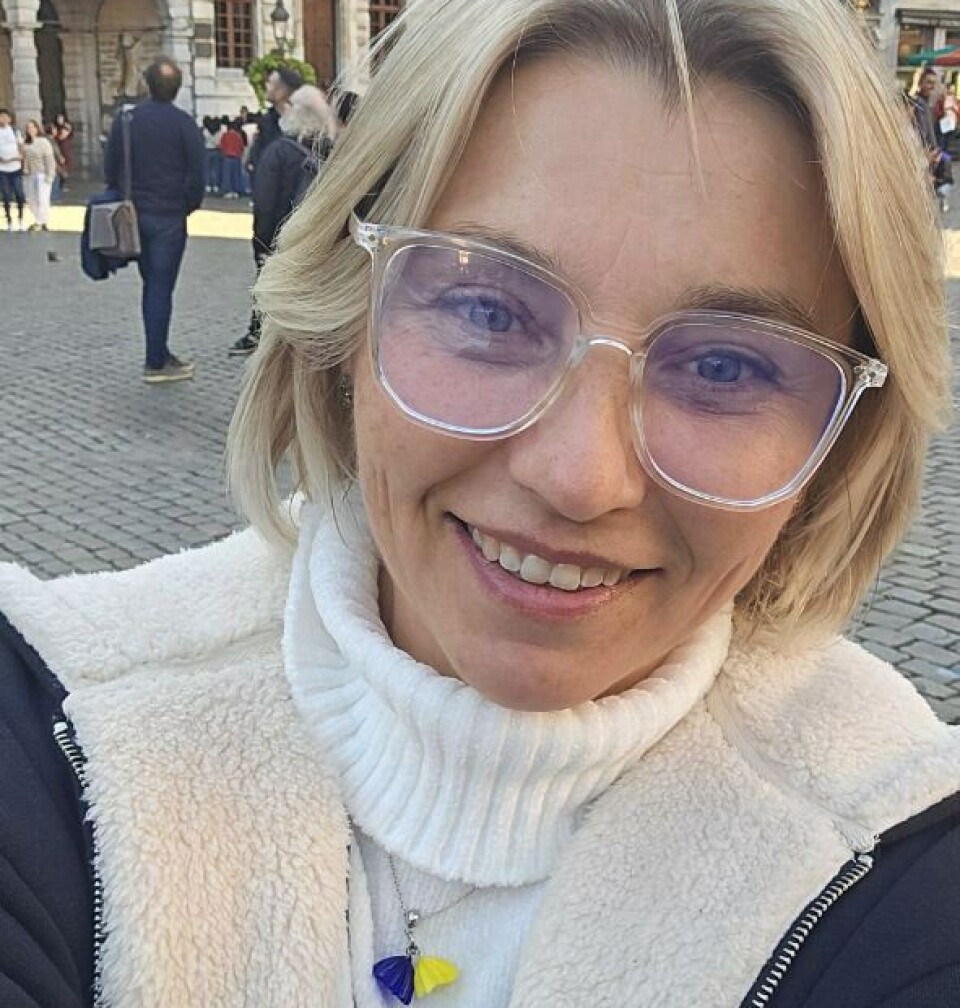
I helped, volunteered, saved animals for more than ten years, was actively involved in the internal affairs of my country and was sure that everyone envied us, that around us were only those who wanted to conquer us. And how surprised I was when I found out: outside of Russia, no one cares how we live.
During the first and second Chechen wars, I thought: 'God, what an amazing people we are, saving everyone from terrorists'. And then you realise that we are the very terrorist from whom everyone is fleeing, and you carry this so-called 'Russian world' with a weapon in your hands.
And then you realise that we are the very terrorist from whom everyone is fleeing, and you carry this so-called 'Russian world' with a weapon in your hands.
It was incredibly painful and shameful for me to realise that I was part of this propaganda. I was part of this insane machine that rushes forward with fists, with weapons in hand, forcing everyone to love it. But not with flowers and a bow — 'love us, please', — but with screams, threats and a red carpet drenched in blood, with a machine gun and in a bulletproof vest: 'Love us, bastards, we are good!'. If you don't love us — we'll shoot you all, you b****. Here it is, the 'Russian world', which has no right to exist.
We do not choose our nationality, we do not choose where to be born. No person on our planet, on this globe, has chosen the place where the 'stork will drop them' or on which cabbage patch they will be 'found', as they joked in the USSR, where once upon a time ‘there was no sex.’
But each of us can choose whether to remain human or not. Therefore, the most important thing we can do now is to help Ukraine so that Russia may have a chance someday.
Each of us can choose whether to remain human or not
I believe it is incredibly important to understand that we can be part of this victory for Ukraine. I would give my life for the life of any Ukrainian — and I know this for sure. The first six months after the start of the full-scale war, when I was still living in Russia, we were near the [Plesetsk] cosmodrome. And every day I was ready for a missile to come and bury us all under a piece of this land. And I was ready for my children to lie next to me, and for us to be gone. Because we are part of a state that attacked Ukraine, where civilians are now dying.
And Chechens died, and Ichkerians, and the people of Georgia — Sakartvelo. And there were wars in Syria. I am sure: if we do not help Ukraine, then Moldova and Kazakhstan will also perish. The 'Russian world' will go everywhere, just to maintain its criminal regime.
Several times, when I had crises, I wanted to give up everything and live a normal life in Germany. But at that moment, I was supported by a huge number of Ukrainians with whom we are now in contact.
I lost quite close people who stood up for the defence of Ukraine. They were killed by Russians. And I cannot allow their children to be killed too. I found a Ukrainian psychotherapist. I registered with a psychiatrist in Germany. I have been on antidepressants for 5 months now.
And I cannot afford to end my conditional war against the 'Russian world'. I will do everything for Ukraine's victory, despite my condition, because whatever it is, it is much better than those who are now sitting in basements hiding their children from Russian missiles.
This is a translation of an article originally published by the Russian-language version of the Barents Observer























